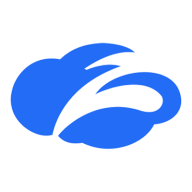

Symantec Data Loss Prevention and Zscaler Zero Trust Exchange Platform are leading solutions in the data security category. While both products have their unique strengths, Symantec's advanced machine learning capabilities give it an edge in data protection and monitoring.
Features: Symantec Data Loss Prevention offers comprehensive network and endpoint capabilities, accurate detection through machine learning, and integration with cloud services. It also supports various encryption mechanisms and facilitates easy management of sensitive documents. Zscaler Zero Trust Exchange Platform focuses on robust connectivity for remote users, cloud-based security, and seamless VPN integration. Its strengths include efficient data inspection, monitoring, and policy management with CASB integration.
Room for Improvement: Symantec users report a need for improved machine learning stability, USB blocking features, and P2P traffic detection. Complexity in installation and dissatisfaction with support times are other concerns. Zscaler could enhance speed, performance consistency, and control granularity, with some users criticizing its pricing and notification system.
Ease of Deployment and Customer Service: Symantec's deployment primarily on on-premises and hybrid environments is complex, and support services have suffered post-Broadcom acquisition. Zscaler, on the other hand, is praised for straightforward cloud integration, although it can improve its service documentation and support detail.
Pricing and ROI: Symantec DLP's pricing is often considered high, especially for smaller firms, due to its dependency on Oracle DB. However, users report cost savings and good ROI through efficient monitoring. Zscaler's user-based licensing provides flexibility, though the high gateway costs impact perceived value. It delivers ROI by enhancing cloud operations and security.
We don't have to purchase many components such as load balancers and proxy servers that were necessary in traditional setups.
The support provided from both Symantec Turkey and distributor companies enables us to support customers and partners effectively.
The support team changed from MTechPro to a different partner, affecting our experience.
Sometimes, support takes time since the solution has some bugs that need fixing.
When using native proxy solutions, scalability issues are minimized, and the solution remains stable.
They can improve their product and the features mainly to focus on how we can prevent that data within the organization, over the cloud, whatever it is, as that is important.
Symantec responded by creating an OCR module, enabling the capability to search within images.
A main disadvantage of Symantec DLP is its reliance on Oracle.
They might be able to identify if something is missing with Zscaler.
Symantec Data Loss Prevention is more expensive compared to competing solutions.
If it is a low target, then of course your cost will be low.
Symantec's OCR module enhances image analysis, crucial for detecting data loss via screenshots, improving the overall security posture against data breaches.
The solution helps enhance security operations when integrated with ServiceNow and offers robust incident response capabilities.
The centralized management console in Symantec Data Loss Prevention helps me understand the data flow analysis part from each and every department.
From an efficiency perspective, I notice a very good user experience, which is easy to use with Zscaler Zero Trust Exchange Platform.
The solution is cloud-based with the latest inspection engines, which I find to be amazing.
| Product | Market Share (%) |
|---|---|
| Symantec Data Loss Prevention | 4.2% |
| Zscaler Zero Trust Exchange Platform | 4.4% |
| Other | 91.4% |

| Company Size | Count |
|---|---|
| Small Business | 23 |
| Midsize Enterprise | 12 |
| Large Enterprise | 28 |
| Company Size | Count |
|---|---|
| Small Business | 16 |
| Midsize Enterprise | 12 |
| Large Enterprise | 41 |
Keeping sensitive corporate information safe and compliant has never been easy. But today, you’re faced with a totally new set of data protection challenges. Sensitive information is leaving the safety of your corporate network as more employees share files over consumer cloud storage services and access those files on their own mobile devices. The number of targeted cyber attacks continues to grow, as cybercriminals develop effective new methods for defeating traditional security measures and stealing corporate information. And as all of these factors converge, it becomes increasingly difficult to manage corporate information and protect it against loss and theft.
Symantec Data Loss Prevention (DLP) provides a comprehensive approach to information protection that embraces today’s cloud- and mobile-centered realities. With DLP, you can:
• Discover where data is stored across all of your cloud, mobile, network, endpoint, and storage systems
• Monitor how data is being used, whether your employees are on or off the network
• Protect data from being leaked or stolen—no matter where it’s stored or how it’s used
Zscaler Zero Trust Exchange enhances security with seamless cloud-based connectivity and VPN-less operation, offering integration with multiple identity providers and advanced security features, suitable for remote work environments.
Zscaler Zero Trust Exchange provides secure, adaptive connectivity without traditional VPNs, allowing organizations to replace legacy systems and bolster remote work security. The platform offers cloud-based protection, single sign-on, dynamic URL categorization, and scalable solutions. While advanced security features like DLP and threat protection enhance data protection, users may face issues with speed, connectivity, and some customization options. Integration challenges, latency due to multi-tenant hosting, reporting delays, and licensing costs require consideration. It supports secure internet access and private application security, ensuring traffic control and data compliance.
What are the key features of Zscaler Zero Trust Exchange?Zscaler Zero Trust Exchange is deployed across industries to secure remote access and enforce zero trust principles. Organizations in finance, healthcare, and technology sectors utilize it for secure internet access and visibility into cloud applications, enhancing performance and compliance in dynamic environments.
We monitor all Data Loss Prevention (DLP) reviews to prevent fraudulent reviews and keep review quality high. We do not post reviews by company employees or direct competitors. We validate each review for authenticity via cross-reference with LinkedIn, and personal follow-up with the reviewer when necessary.